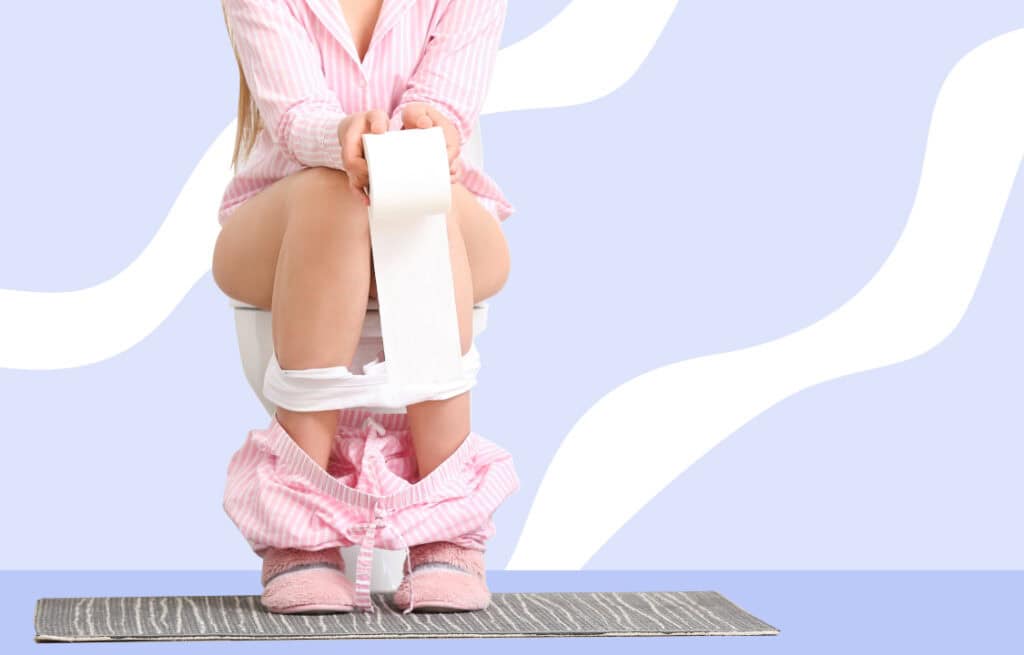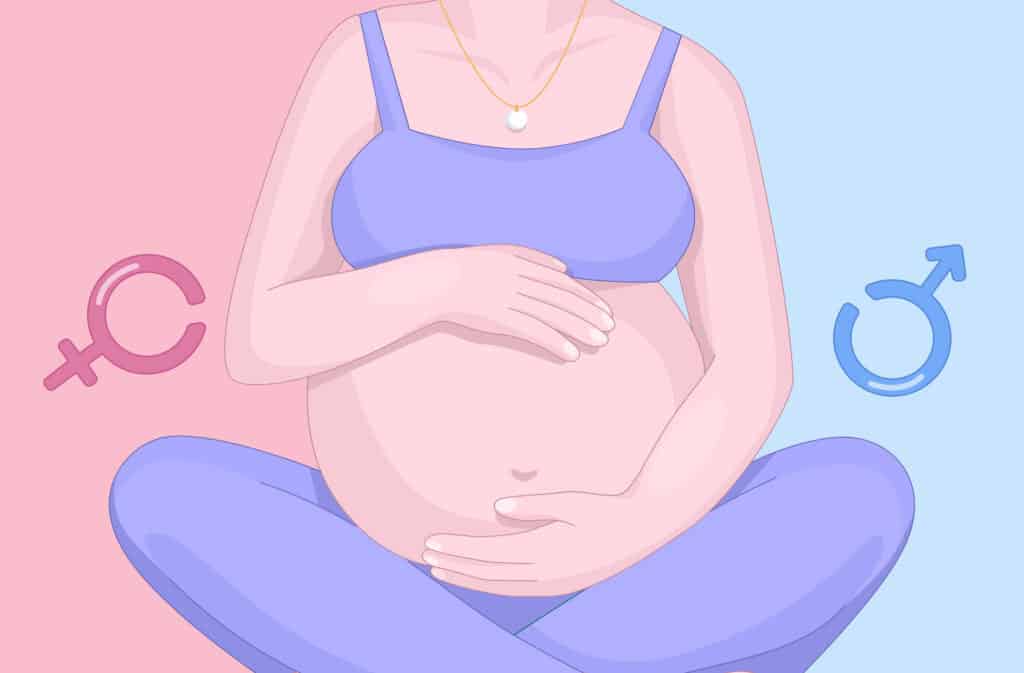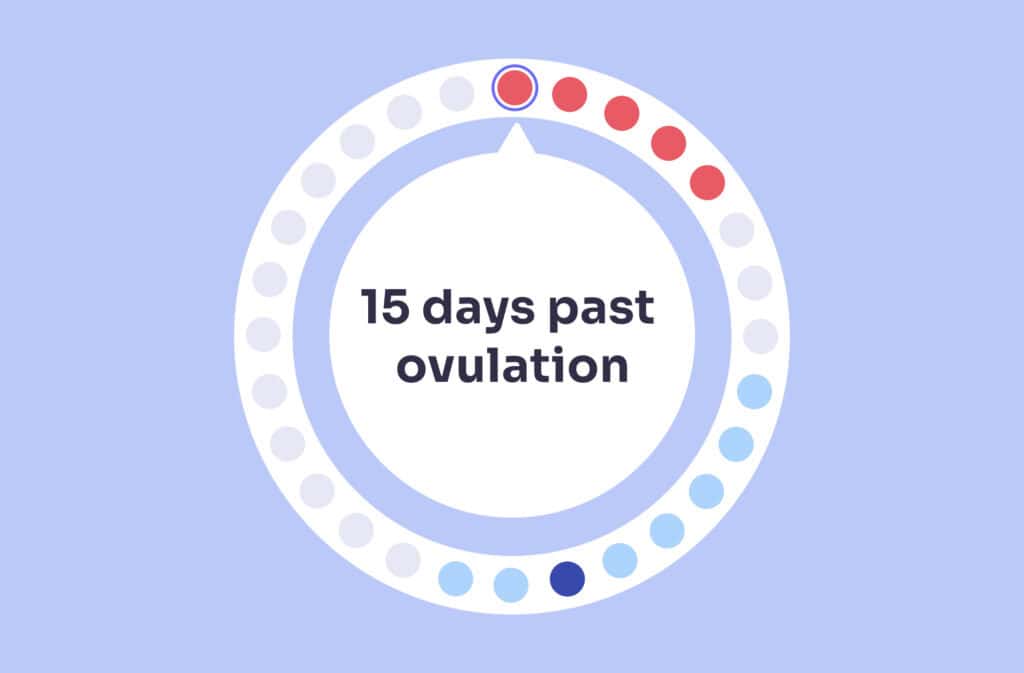Femia > Health Library > Pregnancy > Pregnancy health > Is diarrhea a sign of pregnancy? Causes, timing, and what to know
Is diarrhea a sign of pregnancy? Causes, timing, and what to know

- Updated Feb 11, 2025
- Published
CRAFTED BY HUMAN
Crafted by human At Femia, we provide accurate and up-to-date information at every stage of your journey, from trying to conceive, pregnancy and postnatal support. All content is created by a real person based on in-depth research and own professional experience. Femia ensures that you will receive expert advice, strict accuracy and a personalized approach from our authors/medical experts. Learn more about our editorial policy.
FACT CHECKED
Fact checked At Femia Health, we maintain the highest standards of editorial excellence in delivering content focused on helping you conceive, guiding you through pregnancy, and supporting you postpartum. Explore our content review principles to learn how we ensure the accuracy and quality of our health and lifestyle tips for every stage of your journey.
Hormonal changes during early pregnancy, including rising progesterone and estrogen levels, may cause digestive symptoms like diarrhea. While diarrhea can occur alongside other pregnancy symptoms, it alone doesn’t mean you are pregnant.
However, during early pregnancy, factors like dietary changes, prenatal vitamins, and stress can contribute to diarrhea.
Diarrhea, nausea, and constipation are some of the many normal pregnancy symptoms that may take you by surprise. However, diarrhea can occur for many more reasons aside from pregnancy, and it isn’t a direct sign that you’re carrying a child.
There are plenty of reasons why you might get diarrhea, including bacteria, food poisoning, irritable bowel syndrome, and more. It can also happen when you’re pregnant, usually triggered by dietary, physiological, and hormonal changes.
Now let’s go over the topics: “is diarrhea a symptom of pregnancy?” its causes, tips to help support healthy bowel movement, and when to seek medical help.
With Femia, you will get personalized insights every step of the way
Is diarrhea a sign of pregnancy?
Although diarrhea alone is not considered a sign of pregnancy, it is still possible for women to experience it or other digestive issues in the first trimester.
Your body undergoes many changes because of pregnancy, and these can affect your digestive health and bowel movements. For example, increasing progesterone hormone levels can cause your digestive system to slow down, often causing constipation.
Eating more fiber or taking some prenatal vitamins can also affect the frequency and consistency of the stool. For some, fiber-rich foods, like vegetables, whole grains, and fruits, help with constipation. While for others, sudden changes in diet can lead to cramping, gas, and diarrhea.
Early pregnancy symptoms are pretty similar for most women. These often include missed periods, nausea and vomiting, changes in food preferences, and cravings. However, it’s important to understand that everybody is unique, so symptoms may vary. And for some, diarrhea with vomiting can be a sign of pregnancy (although it can also be a sign of digestive health).
Hormonal changes and diarrhea in early pregnancy
Rising levels of progesterone and estrogen during the first trimester can cause noticeable changes in the digestive system making women wonder “is diarrhea a sign of early pregnancy?”
Progesterone, which is known as the “pregnancy hormone,” helps relax muscles within the body, including those located in the gastrointestinal tract.
This relaxation may slow down bowel movements causing constipation – a common complaint among pregnant women. However, in some, such hormonal shifts create an imbalance in the digestive system, leading to diarrhea instead.
The increase in estrogen hormone can also affect gut motility and alter the gut microbiome, so it further contributes to digestive irregularities. These changes are normal and just the body adapting to the demands of pregnancy, ensuring nutrients are efficiently absorbed and the uterus is primed for supporting the growing fetus. While these symptoms are inconvenient, they usually resolve on their own within time as hormone levels stabilize.
👉Find out more: Can you be pregnant and still have a period? Understanding bleeding during pregnancy
Diarrhea and pregnancy implantation
For those wondering “is diarrhea a sign of pregnancy implantation?” the answer is, it is not a direct or definitive sign, but it can be one of the symptoms of early pregnancy as it can occur due to hormonal changes accompanying early pregnancy.
Implantation is a process where the fertilized egg attaches to the uterine lining, and it does not directly impact the digestive system.
There are several common symptoms of implantation itself. These are usually mild and include light spotting, often referred to as implantation bleeding, and cramping in the lower abdomen.
However, at this time the body will undergo major hormonal shifts to prepare for pregnancy, which can indirectly affect digestion and lead to symptoms like diarrhea during implantation.
It’s important to understand that while diarrhea may coincide with early pregnancy, it is not a reliable indicator of implantation and is usually linked to other dietary changes.
Other causes of diarrhea during early pregnancy
Aside from hormonal changes, there are other reasons for diarrhea during pregnancy. These include:
- Dietary changes: it’s common for one’s taste buds and cravings to change during pregnancy. Changes in diet may prompt changes in bowel movements. For example, eating more fiber-rich foods like whole grains and other fruits will have a natural laxative effect and in some cases lead to diarrhea.
- Prenatal vitamins: such supplements can sometimes cause an upset stomach and loose stools. However, if you experience some of these side effects and think your prenatal vitamin may be to blame, consult a healthcare provider to get a different brand recommendation.
- Infections or illness: It’s also common for diarrhea to be caused by several health conditions, including irritable bowel syndrome, bacteria, virus, food poisoning and more. These don’t relate to pregnancy at all and require medical consultation.
Diarrhea vs. other early pregnancy symptoms
While common in some cases, diarrhea is not typically recognized as one of the main early pregnancy signs, though it can certainly occur due to hormonal changes or changes in diet.
So if you’re wondering “is pooping a sign of pregnancy?” let’s explore other common early pregnancy symptoms that may correlate with the changes in your bowel movements:
- Nausea and vomiting: these are common signs of early pregnancy and are often called “morning sickness.” A rise in hormones, especially human chorionic gonadotropin (hCG) and progesterone, can slow digestion, sometimes causing diarrhea while the gut struggles to adapt.
- Fatigue: fatigue can be caused by rising progesterone levels, which is responsible for relaxing the body’s muscles, including those in the gastrointestinal tract. This can lead to inconsistent bowel movements, which may range from constipation to diarrhea.
- Breast tenderness: hormonal changes that prepare the body for breastfeeding also cause breast swelling and soreness. The same hormones can also sometimes indirectly affect the digestive system, causing diarrhea in some women.
With Femia, you will get personalized insights every step of the way
Differentiating between diarrhea before a period and early pregnancy diarrhea
It’s hard sometimes to differentiate between diarrhea before a menstrual period and diarrhea early pregnancy, as hormonal shifts often cause both. Let’s see how they can differ:
1. Timing
- Before a period: Diarrhea before a period is common in the luteal phase because of the increased levels of prostaglandins, preparing the uterus for shedding its lining – but it can also affect the intestines.
- Early pregnancy: Diarrhea in early pregnancy may happen after a missed period as the body requires time to adjust to rising hCG, estrogen and progesterone levels.
2. Accompanying symptoms
- Before a period: Diarrhea can be accompanied by menstrual cramps, breast tenderness, mood swings, and bloating. These usually resolve on the first day of menstruation.
- Early pregnancy: Diarrhea in early pregnancy might appear alongside nausea, fatigue, heightened sense of smell, and food aversions—symptoms not typically linked to premenstrual syndrome (PMS).
3. Duration
- Before a period: In this case, diarrhea is usually short-lived and lasts two days, resolving within a day or two of menstruation.
- Early pregnancy: Pregnancy-related digestive changes can persist as hormones stabilize over a period of weeks.
👉Find out more: First-trimester screening: Understanding genetic testing and results during early pregnancy
When to consult a doctor
While in most cases, diarrhea isn’t harmful and resolves on its own, there are some cases when it’s best to seek medical advice. Here are some examples:
Diarrhea lasts more than two days
This applies to both diarrhea before period or pregnancy.
PMS-related diarrhea typically lasts no more than two days. Pregnancy-related diarrhea may last for about a week.
However, if you experience diarrhea more than five times a day and it lasts for more than two days, in both cases, it’s a sign to visit a healthcare provider to check for illness and to prevent dehydration.
Symptoms like fever, severe cramping, or dehydration occur
Make sure you seek medical advice if there are any worrying symptoms alongside diarrhea like dehydration.
Dehydration involves dizziness, sunken eyes, rapid breathing, dizziness, sunken eyes, fainting, rapid breathing, and a racing heart.
There's a concern about medications or underlying conditions
If you feel that it isn’t early pregnancy diarrhea or diarrhea related to PMS and you notice other symptoms of illness consider consulting a healthcare provider.
Other things that could cause diarrhea include, among others, food poisoning, bacterial infection, or irritable bowel syndrome.
Questions from the Femia community
How do I know if my diarrhea is related to pregnancy or something else?
If the diarrhea goes along with other common symptoms of pregnancy like a missed period, nausea, breast tenderness, and changing food preferences you may want to take a pregnancy test or consult a healthcare provider.
Is diarrhea before a period a sign of pregnancy?
In most cases no, diarrhea before a period is more likely caused by hormonal changes that are a normal part of your menstrual cycle.
Is nausea and diarrhea a sign of pregnancy?
In most cases, women experience nausea during early pregnancy. Diarrhea alone should not be considered as a pregnancy sign. When these symptoms are combined with missed periods, then it is likely pregnancy. Take a pregnancy test to know for sure.
Can diarrhea harm my pregnancy?
Occasional diarrhea is usually harmless, but persistent or severe cases that cause dehydration should be evaluated by a doctor.
The bottom line
Diarrhea can be a symptom experienced during early pregnancy due to hormonal and dietary changes, but it is not a reliable indicator of pregnancy on its own. Understanding the interplay of these factors can help you better manage symptoms. If diarrhea persists, causes severe discomfort, or leads to dehydration, consult a healthcare provider to safeguard your health.
References
- Mayo Clinic. “Diarrhea – Symptoms and Causes.” Mayo Clinic, 18 Aug. 2021, www.mayoclinic.org/diseases-conditions/diarrhea/symptoms-causes/syc-2035224.
- Johns Hopkins Medicine. “Constipation.” Www.hopkinsmedicine.org, 2024, www.hopkinsmedicine.org/health/conditions-and-diseases/constipation.
- Cleveland Clinic. “Nausea and Vomiting | Cleveland Clinic.” Cleveland Clinic, 2019, my.clevelandclinic.org/health/symptoms/8106-nausea–vomiting.
- Cleveland Clinic. “Progesterone: Natural Function, Levels & Side Effects.” Cleveland Clinic, 29 Dec. 2022, my.clevelandclinic.org/health/body/24562-progesterone.
- John Hopkins Medicine. “Estrogen’s Effects on the Female Body.” Www.hopkinsmedicine.org, 2022, www.hopkinsmedicine.org/health/conditions-and-diseases/estrogens-effects-on-the-female-body.
- Forbes, Laura, et al. “Dietary Change during Pregnancy and Women’s Reasons for Change.” Nutrients, vol. 10, no. 8, 8 Aug. 2018, p. 1032, www.ncbi.nlm.nih.gov/pmc/articles/PMC6115730/, https://doi.org/10.3390/nu10081032.
- “First Trimester Fatigue.” Www.hopkinsmedicine.org, www.hopkinsmedicine.org/health/conditions-and-diseases/first-trimester-fatigue.
- hospitalkjk. “Breast Pain during Pregnancy: Causes & Remedies – KJK Hospital.” KJK, 23 Nov. 2023, kjkhospital.com/breast-pain-during-pregnancy-causes-and-remedies/.
- “Dehydration – Symptoms and Causes.” Mayo Clinic, www.mayoclinic.org/diseases-conditions/dehydration/symptoms-causes/syc-20354086#.
- Mayo Clinic. “Premenstrual Syndrome (PMS) – Symptoms and Causes.” Mayo Clinic, 25 Feb. 2022, www.mayoclinic.org/diseases-conditions/premenstrual-syndrome/symptoms-causes/syc-20376780.

Curious about whether pregnancy symptoms can predict your baby’s sex? Discover the myths and facts about boy vs. girl pregnancy symptoms, and what science says about gender predictions.

Discover ways to enhance your sexual life after menopause through the physical changes you experience, while continuing to achieve fulfilling orgasms.

Explore the symptoms at 15 days past ovulation (15 DPO), your body changes, and learn how to confirm your pregnancy with accurate testing. Expert advice from Femia.

